Direction (1-4): Read the data carefully and answer the following questions.
The following bar graph represents the market shares of some mobile manufacturers in China for two years. There are two types of phone- GSM and CDMA in the market. These manufacturers manufacture both types of phones. Others comprise all manufacturers whose market share is less than other four given. Bar graph shows the percentage distribution of GSM and CDMA mobile phones in 2016-2017 and in 2017-2018.
2016-2017: Total market= 25 lakh units; GSM: 70% of total market; CDMA: 30% of market
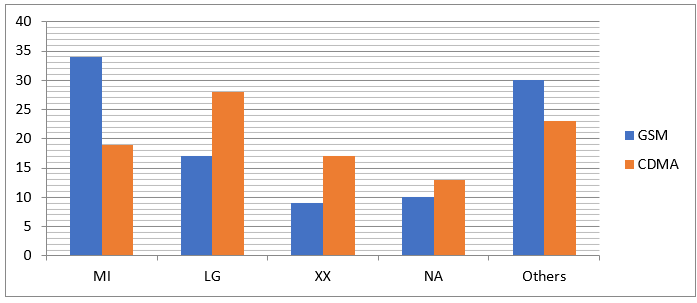
2017-2018: Total market= 28 lakh units; GSM: 75% of total market; CDMA: 25% of market
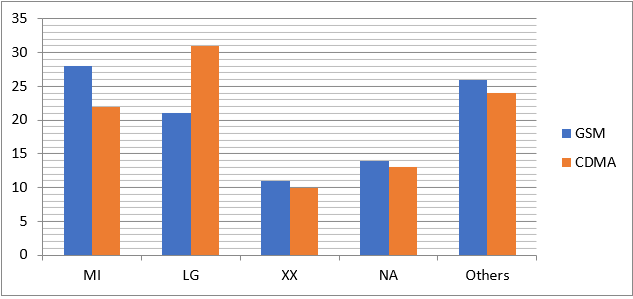
Q1. Which of the following company has the highest overall market shares in 2017-18?
(a) LG
(b) MI
(c) NA
(d) XX
(e) Can’t be determined
Q2. The percentage increase in market share (in percentage) in 2017-18, compared to the previous year, among the given manufacturers was the highest for?
(a) MI
(b) LG
(c) XX
(d) None of these
(e) NA
Q3. What will be the total market share in units of XX in the year 2017-18?
(a) 3,02,000
(b) 3,00,500
(c) 3,01,500
(d) 3,01,000
(e) None of these
Q4. If there is an increase of 20% in the price of each handset for NA in 2017-18 compared to the price of each handset in 2016-2017 then find, the increase in revenue of NA in 2017-18 over 2016-17?
(a) 62.5%
(b) 69%
(c) 72%
(d) 75%
(e) 78%
Directions (5-8): Bar graph shows the number of fans produced (in hundreds) by a manufacturer in the period of four months i.e. from January to April.
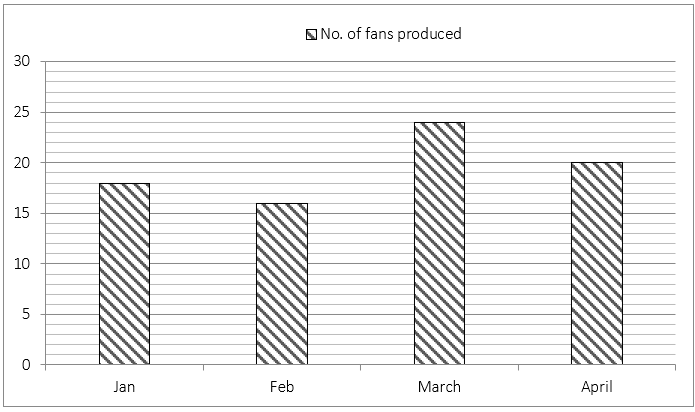
Shopkeeper has to decide whether to test or not all the units of fans before sending them to the customer. If he has decided to test he has two options.
(a) Option I
(b) Option II
Option I : – It cost Rs 2.50 per unit as testing cost but this method of testing allows 30% of defective fans to pass to the customer.
Option II : – It cost Rs 4 per unit as testing cost and it find 90% of defective units
→ All defective units identified at the customer end, will causes a penalty of Rs 60 per units. Which are to be paid by shopkeeper. Defective units found during testing are repaired at Rs 20 per unit.

Q6. For February month, find the difference of the extra (i.e. total of testing, repairing cost and penalties) incurred by the shopkeeper. For the both options if 150 units are defective in that months.
(a) Rs 1000
(b) Rs 1200
(c) Rs 1250
(d) Rs 1400
(e) Rs 1350
Q7. Find ratio of all defective units of January to April months if in January he uses option I for testing and in April, option II as testing. Repairing cost of April is Rs 5300 more than that of January whereas penalties for January is Rs 900 more than that of April
(a) 3 : 8
(b) 2 : 5
(c) 11 : 18
(d) 4 : 9
(e) 8 : 15

Direction (9 – 10) : Given below line graph shows total number of students (Hosteler + Day scholar) in five different years in a college ‘A’ ,also shows total number of Day scholar students. Read the data carefully and answer the questions.
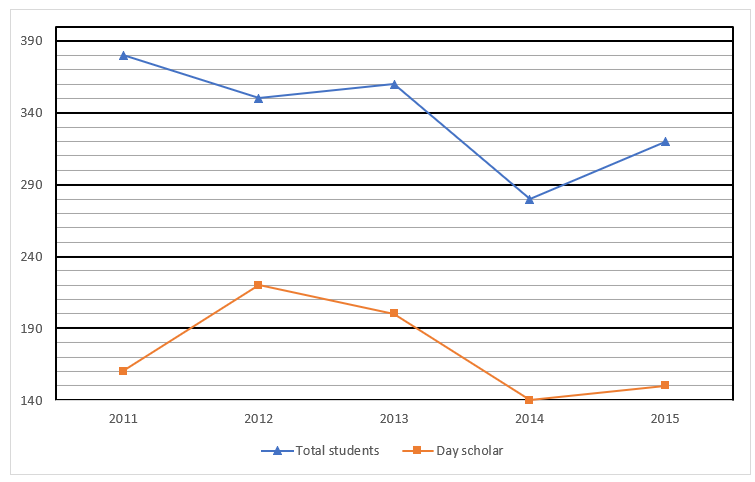

Q10. In 2016 in college A total students are 25% more than previous year, and total students in college ‘B’ in 2016 are 40% more than that of total students in college ‘A’ in same year. If sum of day scholar in the both colleges are 540 and total hostler in college ‘A’ are 20 more than total hostler in college ‘B’ and each hostler annual fee in college ‘B’ in the year 2016 is Rs. 12000, then find total amount hostler paid in college ‘B’(in Rs.)?
(a) 24,00,000
(b) 22,00,000
(c) 20,00,000
(d) 30,00,000
(e) None of these
Solutions

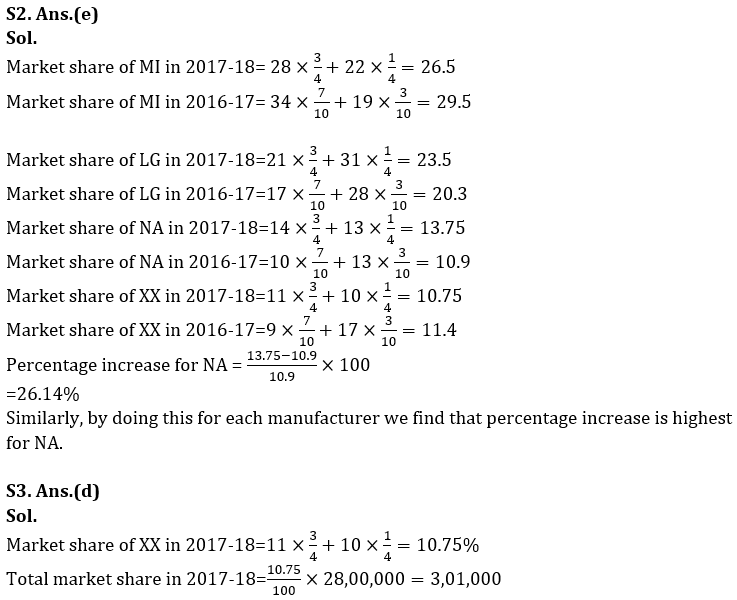
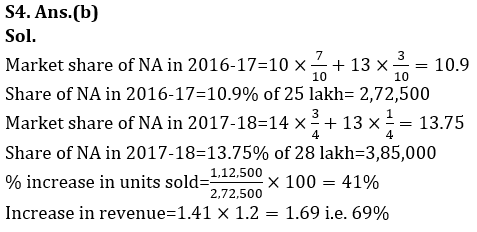
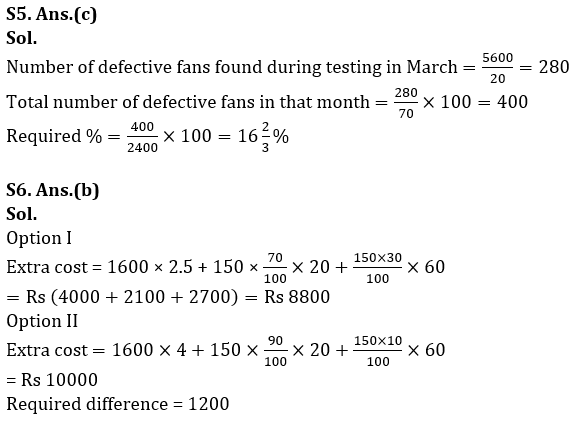
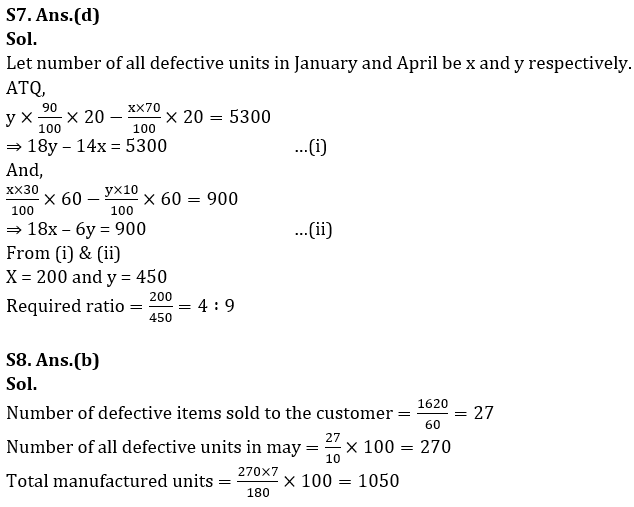
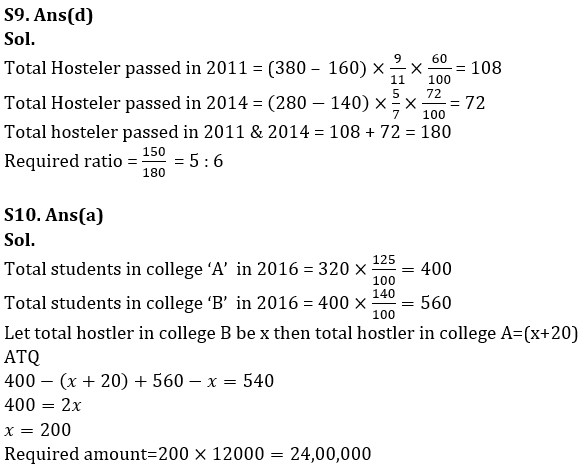


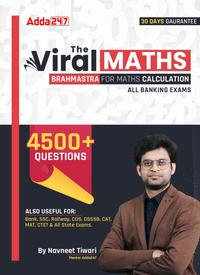


 Data Interpretation Questions for SBI PO...
Data Interpretation Questions for SBI PO...
 Data Interpretation Questions For Bank E...
Data Interpretation Questions For Bank E...
 Quantitative Aptitude Quiz For Bank Main...
Quantitative Aptitude Quiz For Bank Main...





